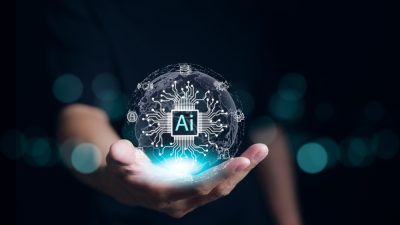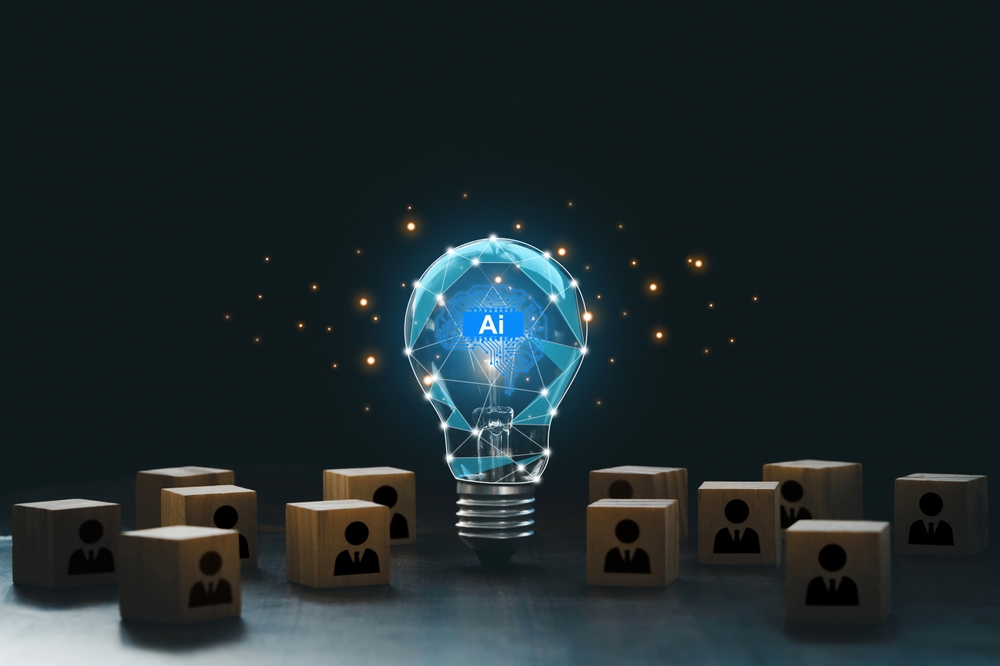Highlights:
- Automation, cloud technologies, and flexible work models require ongoing employee training, with AI and GenAI enhancing the process.
- Automation and AI have existed for some time, but recent advancements are pushing machine capabilities further.
Businesses must address upskilling, cross-skilling, and technology adoption to equip employees securely and at scale, supporting productivity and growth.
To attract and retain talent, organizations should provide hardware, software, and services that ensure a consistent experience across remote, field, and on-site work environments, with devices purpose-built for secure AI-enabled practices.
AI and GenAI solutions are reshaping productivity, driving upskilling, and deepening the integration of hardware and software, laying the foundation for transformational work practices. So, this is a high time business should have AI ready workforce.
Transforming Work with AI and GenAI
Enterprises find it hard to keep up with modern work demands and must now adapt to AI and GenAI-driven changes in work and skill development.
Organizations already face issues in keeping up with the fast pace and complexity of modern work. They must now also prepare for how AI and GenAI will transform work and reshape skill development practices.
IDC data says:
- By 2027, 40% of existing job roles within G2000 organizations will be redefined or phased out.
- By 2026, GenAI and automation will drive USD one trillion in productivity through personalized skills development.
- From 2024 to 2027, organizations will invest USD 346 billion in products and services to implement GenAI.
- 41% of organizations see IT training and skills development as the major investment to boost employee experience and productivity.
Skills and Automation: The Future of Work Investments
Business growth drives technology investments and skill training, empowering employees to better meet client needs across locations and devices.
Automation and AI have long been present, but recent advancements are expanding the boundaries of machine capabilities. These innovations are essential for driving business value, fostering economic growth, and achieving remarkable progress on some of society’s most pressing challenges. It has below business outcomes:
- Increased operational efficiency
- Improved employee productivity
- Cost savings
- Revenue growth
- Improved customer satisfaction
But it is also posing challenges, with many roles at risk of automation. A McKinsey report estimates that by 2030, up to 375 million workers may need to shift to new job categories.
Business leaders must embrace AI as an opportunity to enhance, not replace, human capabilities, enabling employees to focus on more complex and creative tasks.
AI-driven Training for Digital Skills: A Top Investment for Business Growth
The adoption of automation, cloud technologies, and flexible work models demands continuous employee training, with AI, GenAI, and automation enhancing the training process.
Here is an impact of work practices and technology investments on business growth. It includes:
- Employee skill development and digital training programs
- Automation, featuring generative AI
- Cloud connectivity and collaborative tool
- Adaptive work structures
- Redesigned physical workspaces
A successful AI-driven workforce solution is a thorough approach to upskilling.
Leaders should focus on the following key strategies:
- Identify future skill needs: Analyze the skills your industry will require over the next decade, emphasizing both technical skills (e.g., machine learning, data analysis) and soft skills (e.g., creativity, critical thinking).
- Sketch targeted training programs: Develop training programs in-house or partner with educational institutions and consulting firms. Make sure these programs align with future organizational demands and are accessible to employees across all roles.
- Support continuous learning: Develop a culture that values lifelong learning by offering mentorship programs, workshops, and online courses. Encourage employees to pursue skill development and career growth.
- Utilize technology for training: Explore AI-powered platforms to deliver personalized learning experiences tailored to personal needs, increasing engagement and retention.
- Evaluate and adapt: Constantly measure the success of upskilling efforts through employee feedback and performance metrics. Make adjustments to keep programs relevant and effective.
Upgrading Your Skills for an AI-powered Workplace
Professionals trying to enhance their skills in an AI-driven world can concentrate on the following areas:
- Data literacy: Developing the ability to work effectively with data is crucial. This includes interpreting and utilizing data, identifying patterns, and extracting meaningful insights to thrive in an AI-powered environment.
- Machine learning: Understanding machine learning algorithms and their applications is increasingly valuable as data-centric technologies continue to evolve.
- Programming and coding: Gaining basic proficiency in programming languages commonly used in AI development, such as Python, can be a significant advantage.
- AI collaboration: Leveraging AI to complement human capabilities can enhance productivity and creativity. For example, using generative AI tools to create content or design visuals.
- AI ethics: Building awareness of ethical AI use is essential for addressing issues like bias, privacy concerns, and unintended consequences, ensuring responsible AI implementation.
This comprehensive skill set prepares professionals to navigate and succeed in an AI-enhanced workplace.
Creating an AI Ready Workforce: New Age Upskilling Strategy
To join the AI skills gaps in your organization, the next step is to design a thorough upskilling strategy that connects with your business objectives and handles identified needs.
This strategy should behave as a roadmap, guiding your initiatives and ensuring prompt allocation of resources.
- Begin by tapping clear, measurable objectives for your AI upskilling programs: These goals should connect directly to business outcomes, such as boosting productivity, enhancing customer experiences, or creating new AI-driven products and services. Well-defined objectives not only help track progress but also ensure that your efforts remain focused and impactful.
- Obtain the important resources and budget to assist your upskilling initiatives: This might involve investing in online training platforms, hiring external consultants, or collaborating with educational institutions. Recognize that upskilling is an investment in both your workforce and the future of your organization, making sufficient funding critical to success.
- Adopt a blended learning approach that incorporates diverse methods and formats: Online courses and self-paced modules can establish foundational knowledge, while hands-on workshops, hackathons, and mentorship programs enhance practical skills and encourage collaboration.
- Customize your upskilling programs: To meet the unique requirements of different roles and departments, a tailored approach is essential. Because AI skills needed by a data scientist will look different from those necessitated by a marketing individual.
- Create a structured and well-rounded AI upskilling strategy: Your organization will be better positioned to harness the opportunities of the AI era with this approach. It ensures your workforce is well positioned to drive innovation, adapt to emerging challenges, and maintain a competitive advantage.
Final Lines
The speedier advancements in AI and GenAI are transforming the way we collaborate, expecting that enterprises adopt robust strategies to upskill their workforce.
By embracing AI training solutions, and adopting a culture of continuous learning, organizations can empower employees to thrive in an AI-enhanced environment.
This revolution isn’t just only about adjusting to change but uncovering it as an opportunity for growth. With focused investments in training, technology, and work environments, companies can unveil new levels of productivity and innovation through an AI-ready workforce.
Finally, as AI continues to redefine the future of work, those who consider upskilling and collaboration will be best positioned to lead in this evolving landscape.
Enhance your knowledge with the updated and insightful technology-related whitepapers.





























































